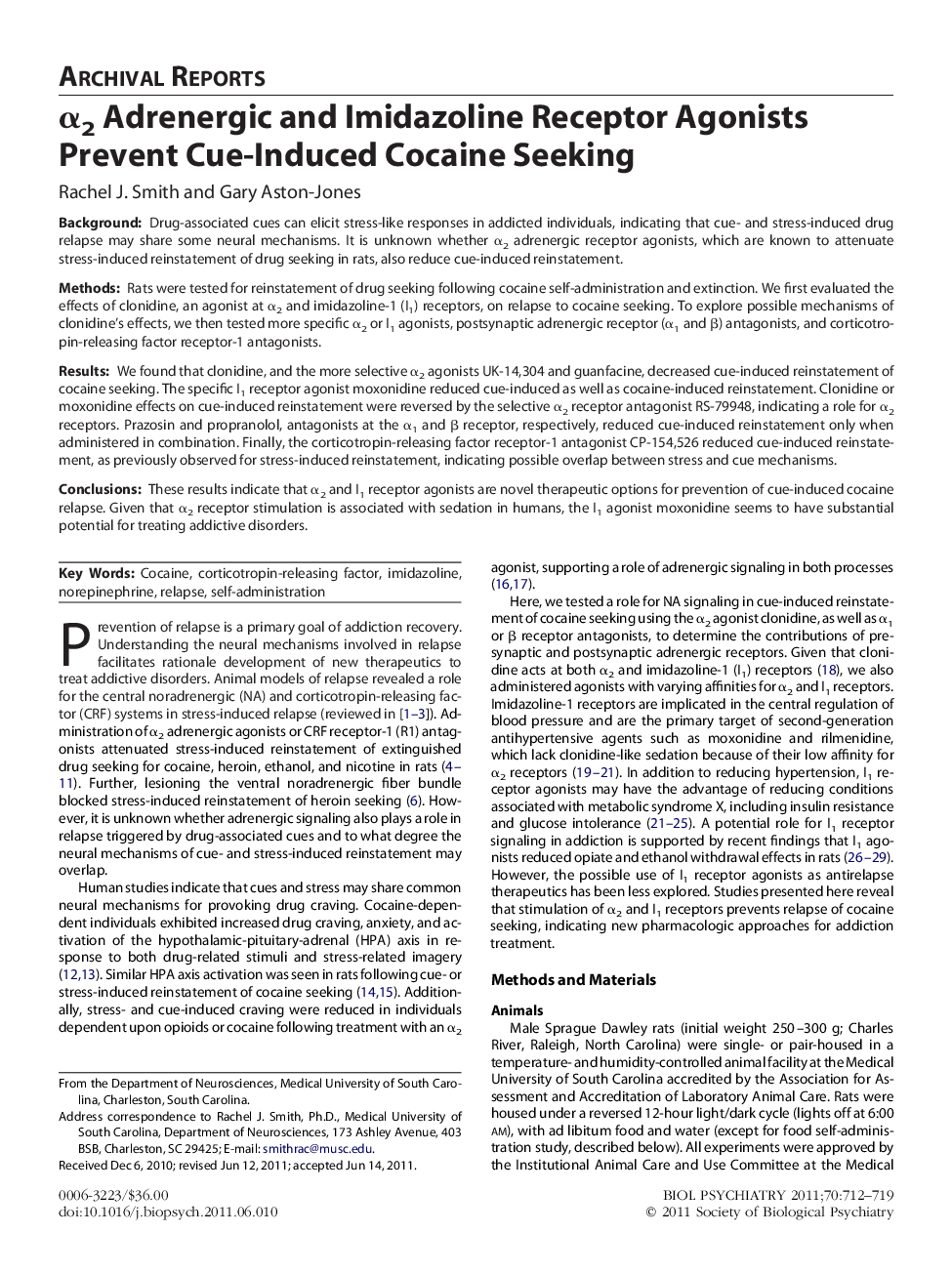| Article ID | Journal | Published Year | Pages | File Type |
|---|---|---|---|---|
| 4178058 | Biological Psychiatry | 2011 | 8 Pages |
BackgroundDrug-associated cues can elicit stress-like responses in addicted individuals, indicating that cue- and stress-induced drug relapse may share some neural mechanisms. It is unknown whether α2 adrenergic receptor agonists, which are known to attenuate stress-induced reinstatement of drug seeking in rats, also reduce cue-induced reinstatement.MethodsRats were tested for reinstatement of drug seeking following cocaine self-administration and extinction. We first evaluated the effects of clonidine, an agonist at α2 and imidazoline-1 (I1) receptors, on relapse to cocaine seeking. To explore possible mechanisms of clonidine's effects, we then tested more specific α2 or I1 agonists, postsynaptic adrenergic receptor (α1 and β) antagonists, and corticotropin-releasing factor receptor-1 antagonists.ResultsWe found that clonidine, and the more selective α2 agonists UK-14,304 and guanfacine, decreased cue-induced reinstatement of cocaine seeking. The specific I1 receptor agonist moxonidine reduced cue-induced as well as cocaine-induced reinstatement. Clonidine or moxonidine effects on cue-induced reinstatement were reversed by the selective α2 receptor antagonist RS-79948, indicating a role for α2 receptors. Prazosin and propranolol, antagonists at the α1 and β receptor, respectively, reduced cue-induced reinstatement only when administered in combination. Finally, the corticotropin-releasing factor receptor-1 antagonist CP-154,526 reduced cue-induced reinstatement, as previously observed for stress-induced reinstatement, indicating possible overlap between stress and cue mechanisms.ConclusionsThese results indicate that α2 and I1 receptor agonists are novel therapeutic options for prevention of cue-induced cocaine relapse. Given that α2 receptor stimulation is associated with sedation in humans, the I1 agonist moxonidine seems to have substantial potential for treating addictive disorders.
